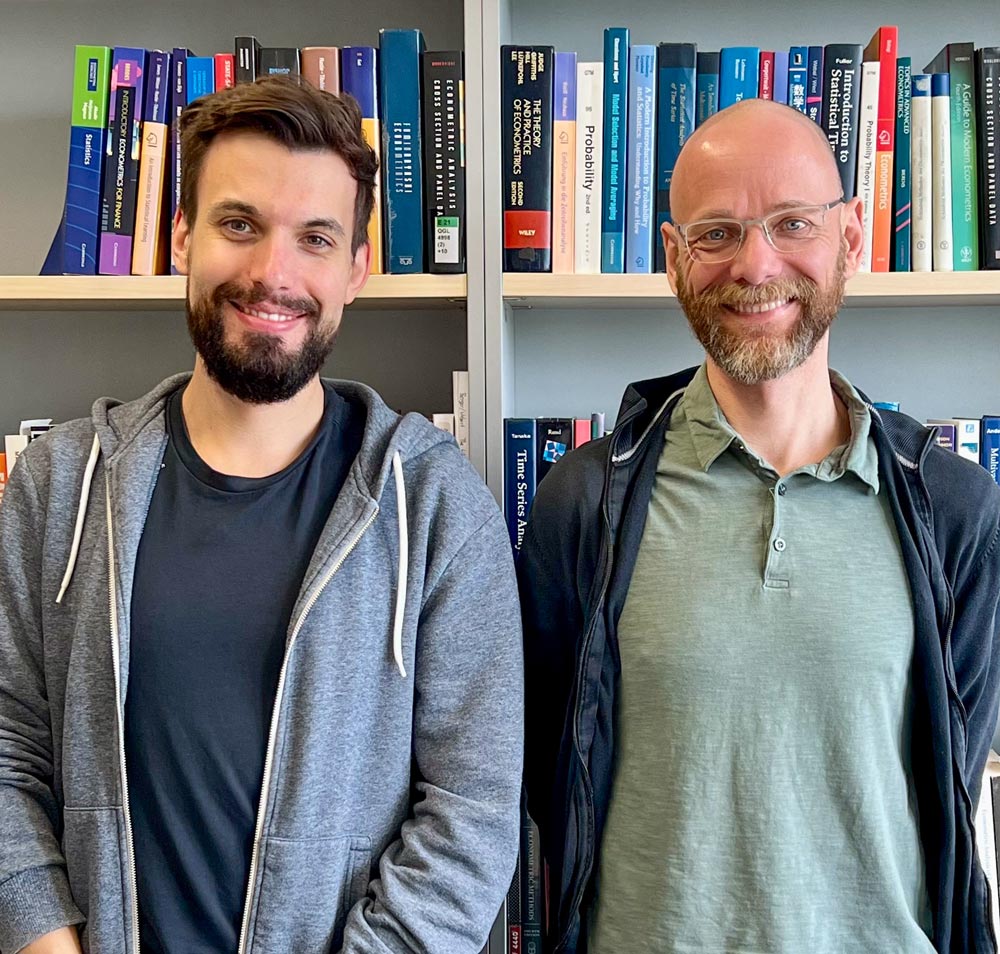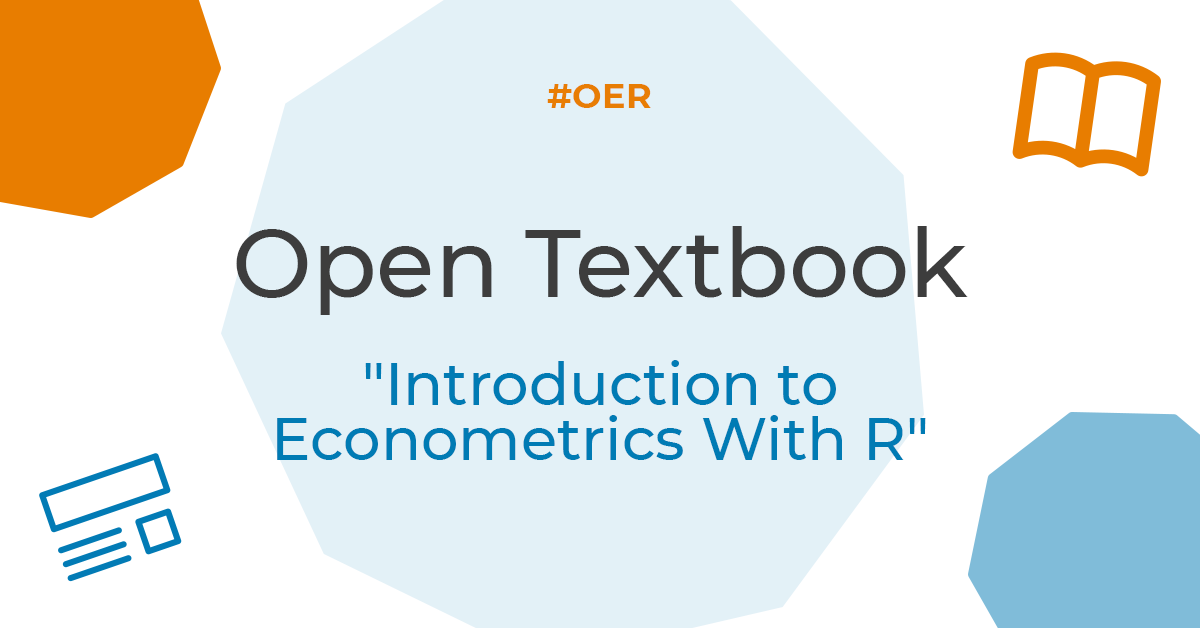
The textbook "Introduction to Econometrics with R" is an interactive online companion for students and researchers. Lecturers worldwide use it in their courses, and the international research community participates in further developing it.
Martin Christopher Arnold and Prof. Dr Christoph Hanck are part of the project team behind the open textbook. In this interview, they talk about the organisation of the Open Educational Resource and give tips for other projects.
How did your textbook project "Introduction to Econometrics with R" come about, and what is its aim?
Introduction to Econometrics with R (ITER) is the result of the project Reproducible Research in basic econometric training, which was funded as part of the Fellowships for Innovations in Digital University Teaching in North Rhine-Westphalia (NRW). ITER is an interactive online companion for introductory econometrics courses. The teaching content deals with data-driven empirical economic research using the statistical programming language R. The Companion is based on the standard work Introduction to Econometrics (Stock & Watson, Pearson Publishing House). The aim is to provide teachers and students with a resource that enables synergy effects when learning methodological competencies and their application with R. To this end, ITER is written in the style of a "research report", which makes the core components of empirical studies (data processing, statistical modelling/inference, communication of results) reproducible using annotated code chunks. The understanding of mathematical-statistical content and the acquisition of application-related skills in self-study are promoted with interactive visualisations and feedback-supported programming tasks.
How is your textbook project organised?
How is it coordinated? With the publication in 2018, we made the project’s source code available under a CC licence in a GitHub repository. Interested parties can use the R package bookdown to independently create customised teaching materials in standard formats (HTML and PDF). Since the end of the project funding, our chair team has been managing the repository in an open review process. Our future students and third parties benefit from the helpful comments from participants in our courses and numerous contributions from international students and lecturers. We want to take this opportunity to thank them for this extensive feedback!
What experiences have you had with your textbook?
Teaching evaluations regarding the continuation of ITER regularly show a positive response from students of the Bachelor's module Introduction to Econometrics. In particular, the targeted use for preparing for exams and tests is reported, which can be empirically proven based on access figures.
At the University of Duisburg-Essen (UDE), the Companion is also used beyond our compulsory courses, for example, in preparing empirical seminar papers and theses. The resource is also used in the introductory phase of the Master's degree programmes in Energy and Finance, Health Economics and Economics, as the compulsory and elective curricula of these degree programmes also include courses focusing on econometrics and statistical programming.
We are particularly pleased with the positive feedback from the international academic community. We regularly receive letters from lecturers from all over the world thanking us for providing the materials and reporting on the use of the Companion in their courses.
What advice would you give to others considering starting a similar project?
What advice would you give to others considering starting a similar project? Just get started! We didn't know exactly where the journey would take us at the beginning, but we learnt a lot and would recommend it again and again. On the technical side, we recommend using a modern scientific publication system such as Quarto to author similar resources. This allows such projects to be realised as interactive websites even without extensive knowledge of web programming. We also consider the use of a version control system such as Git and software for open review (like hypothes.is) to be extremely helpful.
Which other Open Educational Resources or Open Science projects from business studies and economics would you recommend?
We were inspired by a project by Florian Heiß from Düsseldorf, which is based on other textbooks and which we highly recommend! There should be something for everyone in empirical work with R at bigbookofr.com!
On our own behalf: Since 2006, a team at UDE has been developing the e-learning and assessment system JACK, which stands out from conventional systems due to its diverse areas of application, particularly with regard to randomisation and multi-level tasks as well as individual feedback. JACK courses for our bachelor modules Descriptive Statistics and Inductive Statistics are available as OER (registration required).
We would like to thank Martin Christopher Arnold and Prof. Dr Christoph Hanck for the interview.
Information on other Open Educational Resources in business studies and economics can be found in the Open Economics Guide.
Prof. Dr Christoph Hanck holds the Chair of Econometrics at the University of Duisburg-Essen. Martin Christopher Arnold, M.Sc., is a research associate at the chair.
